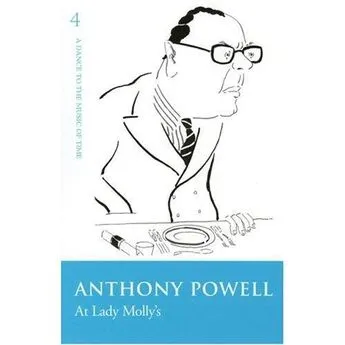Anthony Trollope - Autobiography of Anthony Trollope
- Название:Autobiography of Anthony Trollope
- Автор:
- Жанр:
- Издательство:неизвестно
- Год:неизвестен
- ISBN:нет данных
- Рейтинг:
- Избранное:Добавить в избранное
-
Отзывы:
-
Ваша оценка:
Anthony Trollope - Autobiography of Anthony Trollope краткое содержание
EBook of Autobiography of Anthony Trollope by Anthony Trollope (www.anthonytrollope.com)
Autobiography of Anthony Trollope - читать онлайн бесплатно ознакомительный отрывок
Интервал:
Закладка:
than in creating. Everything that comes before her is pulled
to pieces so that the inside of it shall be seen, and be seen if
possible by her readers as clearly as by herself. This searching
analysis is carried so far that, in studying her latter writings,
one feels oneself to be in company with some philosopher rather
than with a novelist. I doubt whether any young person can read
with pleasure either Felix Holt, Middlemarch, or Daniel Deronda.
I know that they are very difficult to many that are not young.
Her personifications of character have been singularly terse and
graphic, and from them has come her great hold on the public,--though
by no means the greatest effect which she has produced. The lessons
which she teaches remain, though it is not for the sake of the
lessons that her pages are read. Seth Bede, Adam Bede, Maggie and
Tom Tulliver, old Silas Marner, and, much above all, Tito, in Romola,
are characters which, when once known, can never be forgotten. I
cannot say quite so much for any of those in her later works, because
in them the philosopher so greatly overtops the portrait-painter,
that, in the dissection of the mind, the outward signs seem to
have been forgotten. In her, as yet, there is no symptom whatever
of that weariness of mind which, when felt by the reader, induces
him to declare that the author has written himself out. It is not
from decadence that we do not have another Mrs. Poyser, but because
the author soars to things which seem to her to be higher than Mrs.
Poyser.
It is, I think, the defect of George Eliot that she struggles too
hard to do work that shall be excellent. She lacks ease. Latterly
the signs of this have been conspicuous in her style, which has always
been and is singularly correct, but which has become occasionally
obscure from her too great desire to be pungent. It is impossible
not to feel the struggle, and that feeling begets a flavour
of affectation. In Daniel Deronda, of which at this moment only a
portion has been published, there are sentences which I have found
myself compelled to read three times before I have been able to
take home to myself all that the writer has intended. Perhaps I
may be permitted here to say, that this gifted woman was among my
dearest and most intimate friends. As I am speaking here of novelists,
I will not attempt to speak of George Eliot's merit as a poet.
There can be no doubt that the most popular novelist of my
time--probably the most popular English novelist of any time--has
been Charles Dickens. He has now been dead nearly six years, and the
sale of his books goes on as it did during his life. The certainty
with which his novels are found in every house--the familiarity of
his name in all English-speaking countries--the popularity of such
characters as Mrs. Gamp, Micawber, and Pecksniff, and many others
whose names have entered into the English language and become
well-known words--the grief of the country at his death, and the
honours paid to him at his funeral,--all testify to his popularity.
Since the last book he wrote himself, I doubt whether any book
has been so popular as his biography by John Forster. There is
no withstanding such testimony as this. Such evidence of popular
appreciation should go for very much, almost for everything,
in criticism on the work of a novelist. The primary object of a
novelist is to please; and this man's novels have been found more
pleasant than those of any other writer. It might of course be
objected to this, that though the books have pleased they have been
injurious, that their tendency has been immoral and their teaching
vicious; but it is almost needless to say that no such charge has
ever been made against Dickens. His teaching has ever been good.
From all which, there arises to the critic a question whether, with
such evidence against him as to the excellence of this writer, he
should not subordinate his own opinion to the collected opinion of
the world of readers. To me it almost seems that I must be wrong
to place Dickens after Thackeray and George Eliot, knowing as I do
that so great a majority put him above those authors.
My own peculiar idiosyncrasy in the matter forbids me to do so. I
do acknowledge that Mrs. Gamp, Micawber, Pecksniff, and others have
become household words in every house, as though they were human
beings; but to my judgment they are not human beings, nor are any
of the characters human which Dickens has portrayed. It has been
the peculiarity and the marvel of this man's power, that he has
invested, his puppets with a charm that has enabled him to dispense
with human nature. There is a drollery about them, in my estimation,
very much below the humour of Thackeray, but which has reached the
intellect of all; while Thackeray's humour has escaped the intellect
of many. Nor is the pathos of Dickens human. It is stagey and
melodramatic. But it is so expressed that it touches every heart
a little. There is no real life in Smike. His misery, his idiotcy,
his devotion for Nicholas, his love for Kate, are all overdone and
incompatible with each other. But still the reader sheds a tear.
Every reader can find a tear for Smike. Dickens's novels are like
Boucicault's plays. He has known how to draw his lines broadly, so
that all should see the colour.
He, too, in his best days, always lived with his characters;--and
he, too, as he gradually ceased to have the power of doing so,
ceased to charm. Though they are not human beings, we all remember
Mrs. Gamp and Pickwick. The Boffins and Veneerings do not, I think,
dwell in the minds of so many.
Of Dickens's style it is impossible to speak in praise. It is jerky,
ungrammatical, and created by himself in defiance of rules--almost
as completely as that created by Carlyle. To readers who have taught
themselves to regard language, it must therefore be unpleasant. But
the critic is driven to feel the weakness of his criticism, when
he acknowledges to himself--as he is compelled in all honesty to
do--that with the language, such as it is, the writer has satisfied
the great mass of the readers of his country. Both these great
writers have satisfied the readers of their own pages; but both
have done infinite harm by creating a school of imitators. No young
novelist should ever dare to imitate the style of Dickens. If such
a one wants a model for his language, let him take Thackeray.
Bulwer, or Lord Lytton,--but I think that he is still better known
by his earlier name,--was a man of very great parts. Better educated
than either of those I have named before him, he was always able to
use his erudition, and he thus produced novels from which very much
not only may be but must be learned by his readers. He thoroughly
understood the political status of his own country, a subject
on which, I think, Dickens was marvellously ignorant, and which
Thackeray had never studied. He had read extensively, and was always
apt to give his readers the benefit of what he knew. The result
has been that very much more than amusement may be obtained from
Bulwer's novels. There is also a brightness about them--the result
rather of thought than of imagination, of study and of care, than
of mere intellect--which has made many of them excellent in their
way. It is perhaps improper to class all his novels together, as
he wrote in varied manners, making in his earlier works, such as
Pelham and Ernest Maltravers, pictures of a fictitious life, and
afterwards pictures of life as he believed it to be, as in My Novel
and The Caxtons. But from all of them there comes the same flavour
of an effort to produce effect. The effects are produced, but it
would have been better if the flavour had not been there.
I cannot say of Bulwer as I have of the other novelists whom I have
named that he lived with his characters. He lived with his work,
with the doctrines which at the time he wished to preach, thinking
always of the effects which he wished to produce; but I do not
think he ever knew his own personages,--and therefore neither do
we know them. Even Pelham and Eugene Aram are not human beings to
us, as are Pickwick, and Colonel Newcombe, and Mrs. Poyser.
In his plots Bulwer has generally been simple, facile, and successful.
The reader never feels with him, as he does with Wilkie Collins,
that it is all plot, or, as with George Eliot, that there is no plot.
The story comes naturally without calling for too much attention,
and is thus proof of the completeness of the man's intellect. His
language is clear, good, intelligible English, but it is defaced
by mannerism. In all that he did, affectation was his fault.
How shall I speak of my dear old friend Charles Lever, and
his rattling, jolly, joyous, swearing Irishmen. Surely never did
a sense of vitality come so constantly from a man's pen, nor from
man's voice, as from his! I knew him well for many years, and
whether in sickness or in health, I have never come across him
without finding him to be running over with wit and fun. Of all the
men I have encountered, he was the surest fund of drollery. I have
known many witty men, many who could say good things, many who
would sometimes be ready to say them when wanted, though they would
sometimes fail;--but he never failed. Rouse him in the middle of
the night, and wit would come from him before he was half awake.
And yet he never monopolised the talk, was never a bore. He would
take no more than his own share of the words spoken, and would yet
seem to brighten all that was said during the night. His earlier
novels--the later I have not read--are just like his conversation.
The fun never flags, and to me, when I read them, they were never
tedious. As to character he can hardly be said to have produced
it. Corney Delaney, the old manservant, may perhaps be named as an
exception.
Lever's novels will not live long,--even if they may be said to
be alive now,--because it is so. What was his manner of working I
do not know, but I should think it must have been very quick, and
that he never troubled himself on the subject, except when he was
seated with a pen in his hand.
Charlotte Bronte was surely a marvellous woman. If it could be
right to judge the work of a novelist from one small portion of
one novel, and to say of an author that he is to be accounted as
strong as he shows himself to be in his strongest morsel of work,
I should be inclined to put Miss Bronte very high indeed. I know
no interest more thrilling than that which she has been able to
throw into the characters of Rochester and the governess, in the
second volume of Jane Eyre. She lived with those characters, and
felt every fibre of the heart, the longings of the one and the
sufferings of the other. And therefore, though the end of the book
is weak, and the beginning not very good, I venture to predict that
Jane Eyre will be read among English novels when many whose names
are now better known shall have been forgotten. Jane Eyre, and
Esmond, and Adam Bede will be in the hands of our grandchildren,
Читать дальшеИнтервал:
Закладка:








